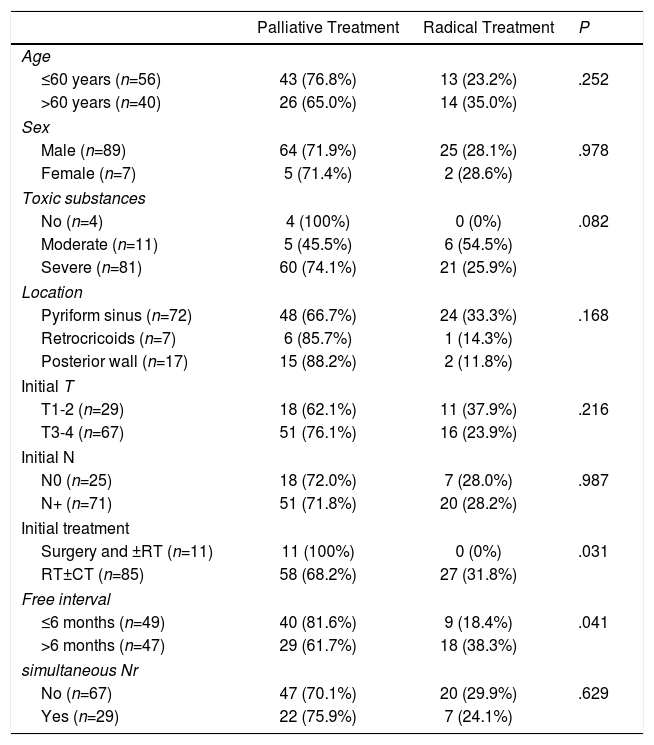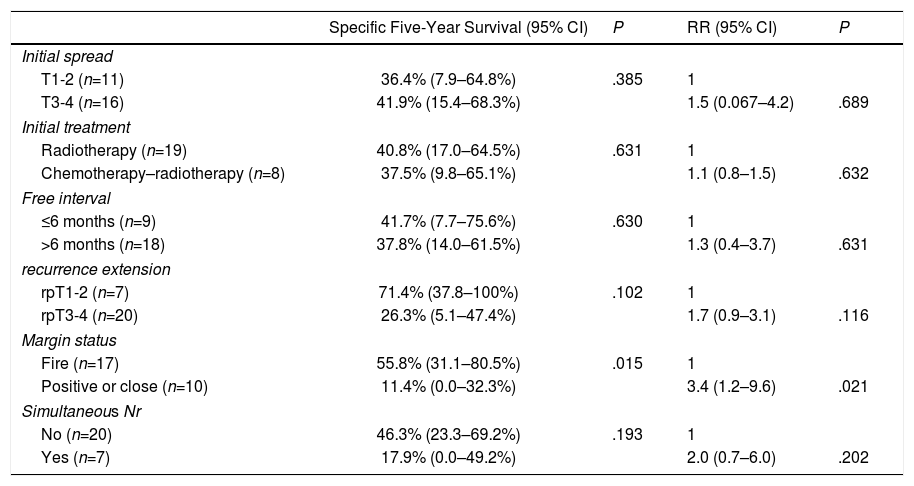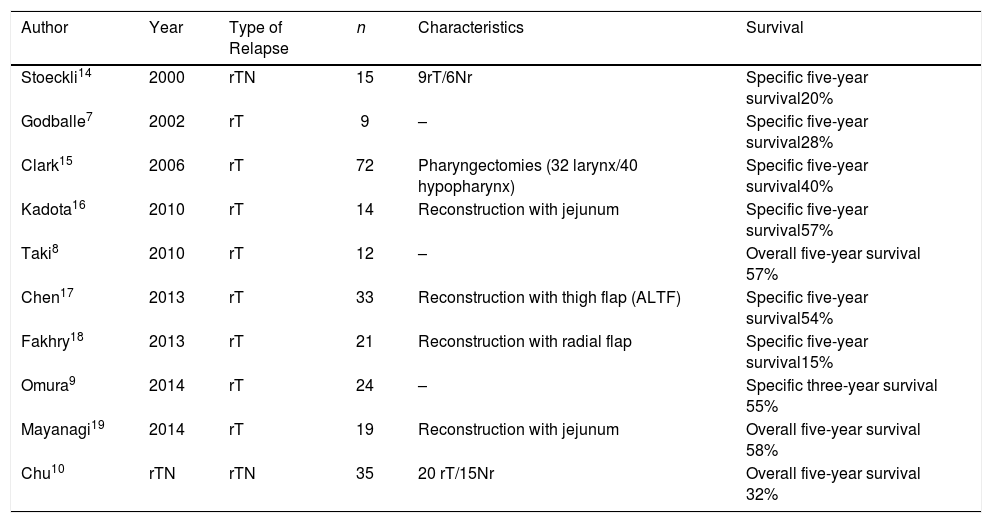The aim of this study is to analyse the variables related to the feasibility of salvage surgery with radical intention in patients with a local recurrence of hypopharyngeal carcinoma, and to evaluate the oncological performance of this type of surgery.
MethodsRetrospective study of 96 patients with hypopharyngeal carcinoma with local tumour recurrence.
ResultOnly 27 patients (28.1%) were considered for surgical salvage treatment. The variables related to feasibility of salvage surgery were non-surgical initial treatment of the tumour and a disease-free interval greater than 6 months. All 69 patients non-candidates for salvage surgery died as a result of tumour progression in a period of less than 2.5 years. The 5-year disease-specific survival rate for the patients treated with salvage surgery was 39.5%. The only variable significantly related to disease-specific survival was the status of the resection margins. Patients with extensive tumour recurrence (rT3-T4) or with simultaneous nodal involvement had a lower survival rate, but the differences did not reach statistical significance.
ConclusionOnly 28% of the patients with hypopharyngeal carcinoma with local recurrence of the tumour were eligible for salvage surgery with radical intention. The patients treated with salvage surgery had a 5-year disease-specific survival of 39.5%.
El objetivo del presente estudio es analizar las variables relacionadas con la posibilidad de llevar a cabo una cirugía de rescate con intención radical en pacientes con carcinomas de hipofaringe con una recidiva local del tumour, así como evaluar el rendimiento oncológico de este tipo de cirugías.
MétodosEstudio retrospectivo de 96 pacientes con carcinoma de hipofaringe con una recidiva local del tumour.
ResultadosSólo 27 pacientes (28,1%) fueron considerados candidatos a cirugía de rescate. Las variables relacionadas con que el paciente fuese tratado con una cirugía de rescate fueron el tratamiento no quirúrgico inicial y un intervalo libre de enfermedad superior a los seis meses. Los 69 pacientes no candidatos a tratamiento quirúrgico de rescate fallecieron como consecuencia de la evolución del tumour en un periodo inferior a los 2,5 años. La supervivencia específica a los cinco años para los pacientes tratados con una cirugía de rescate fue del 39,5%. La única variable que se relacionó de forma significativa con la supervivencia específica fue el estatus de los márgenes de resección. Los pacientes con una recidiva tumoral extensa (rT3-4) o con una afectación ganglionar simultánea tuvieron una peor supervivencia, pero sin que las diferencias alcanzasen la significación estadística.
ConclusiónSólo un 28,1% de los pacientes con carcinomas de hipofaringe con una recidiva local del tumour fueron considerados candidatos a tratamiento de rescate quirúrgico con intención radical. De los pacientes tratados con una cirugía de rescate, la supervivencia específica a los cinco años fue del 39,5%.










